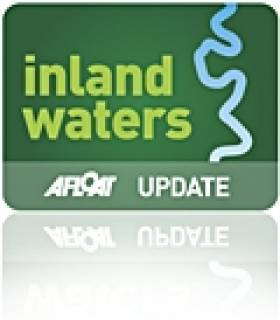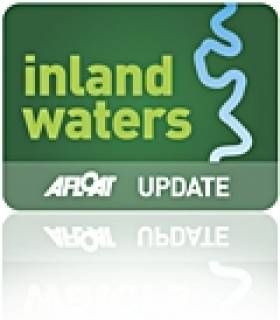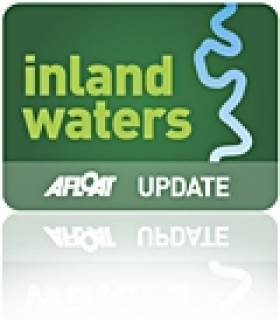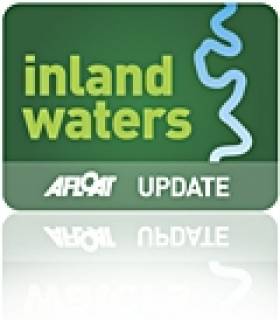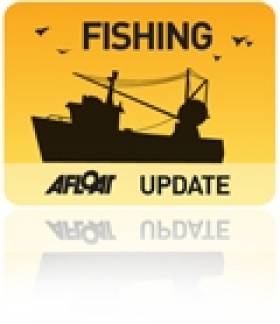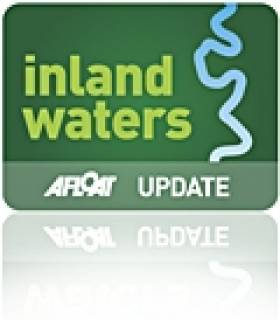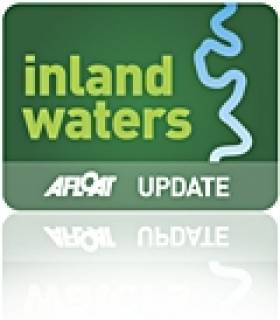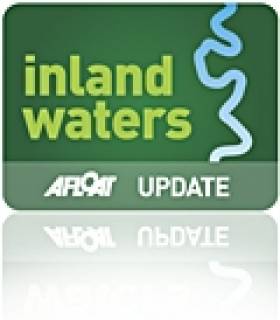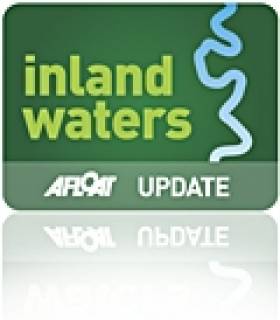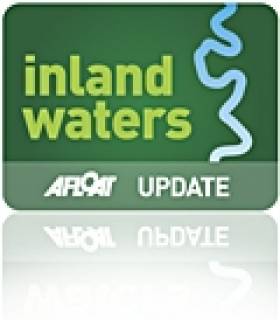Displaying items by tag: inland waters
Public Consultation Opens On Disability Action Plan For Inland Waterways
#InlandWaters - Waterways Ireland has opened a public consultation on its draft Disability Action Plan for Ireland's inland waterways.
According to the cross-border body for Ireland's main inland navigations, the draft represents its commitment "to promoting positive attitudes towards people with disabilities and encouraging their participation in public life".
The draft plan is aligned with guidance from the Equality Commission of Northern Ireland in accordance with Section 49A of the Disability Discrimination Act, 1995 (as amended by the Discrimination (NI) Order, 2006).
Waterways Ireland says it hopes to "obtain wide ranging views" on the draft plan and "invite ideas on how best we can develop and promote increased participation opportunities for people with disabilities".
The consultation is open until 2 March 2015. Download the draft plan, and find details on how to participate, on the Waterways Ireland website HERE.
Galway City Waterways In 'Dire State' Says Councillor
#InlandWaters - The "neglect" of Galway city's "deteriorating" waterways was on the agenda at last night's city council meeting.
Sinn Féin's Cllr Anna Marley sought to raise the issue of poor maintenance of waterways such as the Gaol River beside Galway Cathedral, plagued by a build-up of silt and weeds as a result of "man-made blockages such as sluice gates", let alone the "disturbing sight" of bottles and cans dumped in the water there and elsewhere.
And as the Galway Advertiser reports, Cllr Marley hopes to work with the council and Inland Fisheries Ireland to develop a strategy for the "radical and positive" overhaul of Galway's rivers and canals.
Waterways Ireland 2015 Sponsorship Programme Now Open
#InlandWaters - Waterways Ireland's 2015 Sponsorship Programme opened this Wednesday 29 October for waterway and waterside recreational events taking place along waterways managed by Waterways Ireland.
Taking place annually for the past nine years, the Waterways Ireland Sponsorship Programme has supported angling, canoeing, rowing, sailing and power sports competitions, learning experiences, community, historical and educational events for people with and without disabilities.
Éanna Rowe, head of marketing and communications with Waterways Ireland, said: "Communities, clubs and associations in towns and villages along rural waterways have participated in small and large events.
"Significant numbers of people have been encouraged to engage and experience something new about the waterways."
Rowe added: "The myriad events supported by Waterways Ireland play both an economic and social role in supporting waterway communities and recreational activity along Ireland's inland waterways."
Applications are open to anyone intending to run recreational waterway and waterside events in 2015. For an application pack please check out the Waterways Ireland website HERE.
Alternatively you can email Waterways Ireland at [email protected] or call 071 96 50787. Terms and conditions apply.
The closing date the receipt of completed applications is 5 December 2014 at 3pm.
Waterways Ireland is the recreation and navigation authority for the Barrow Navigation, Erne System, Grand Canal, Lower Bann Navigation, Royal Canal, Shannon-Erne Waterway and the Shannon Navigation.
Waterways Ireland Consults On Heritage & Biodiversity Plan
#InlandWaters - Waterways Ireland is inviting submissions from all interested parties, groups and individuals before commencing the development of a Heritage & Biodiversity Plan for the waterways under its care.
The cross-border agency for Ireland's inland waterways is particularly seeking input into the issues and/or projects that should be addressed.
Beginning tomorrow Monday 20 October and running till 12 January 2015, interested stakeholders can complete an online survey (or submit by email or post) to gauge waterways users' vision for the natural and cultural heritage of our rivers, lakes and canals.
Future consultations will seek input on Waterways Ireland's proposed Disability Action Plan, new Lough Erne bye-laws, and Environmental and Heritage Policy going forward. For more see the Waterways Ireland website HERE.
Two Men Prosecuted For Illegal Netting On River Nore
#Fishing - Two men have been prosecuted for illegal netting on the River Nore, downstream of Inistioge, at a recent sitting of Kilkenny District Court on Tuesday 14 October.
John Griffin and Tony Malone, both of Inistioge in Co Kilkenny, pleaded guilty to possession of a stake (fixed) net, use of a boat in the commission of offences, and obstructing a fishery officer.
Judge Eamon O’Brien convicted Griffin, imposing fines of €300.00 and awarded legal costs of €568.50 and convicted Malone, imposing fines of €200.00 and awarded legal costs of €568.50.
PJ Doran, fishery officer with Inland Fisheries Ireland (IFI), told Judge O'Brien that at around 2.15am on 11 July this year, he and fishery officer Jarlaith Gallagher observed Griffin pick up a net which they had hidden on the river bank.
Doran attempted to apprehend Griffin as he made his way back to his boat with the net, where Malone was waiting. A struggle ensued as Griffin attempted to board the boat, eventually escaping and speeding away. Doran and Gallagher clearly identified both men using night vision equipment and high powered torches.
Doran retrieved the net, which was a monofilament net measuring 20 meters in length and designed to fish as a fixed net. A fixed net is illegal and very different to a snap net, which uses nylon material and floats between two punts, meaning it is manned at all times.
Snap net fishing is a legal form of traditional fishing for salmon where each fish caught must be tagged and registered and is carefully managed by IFI. Griffin held a snap net licence for fishing on the Nore during the 2014 season, and has been convicted on two previous occasions for illegal netting of salmon.
David McInerney, director of IFI Clonmel, commented: “Fishing with a fixed net under cover of darkness is illegal and has the potential to do significant damage to our valuable salmon stocks.
"Unfortunately, the salmon population on the River Nore is in decline and illegal netting such as this is a serious environmental crime.
“Inland Fisheries Ireland puts significant resources into ensuring such activity is stamped out and we would urge members of the public to ensure they do not support this illegal activity by buying wild salmon which are caught illegally.
"Salmon legally caught on the Nore snap net fishery should all have a clearly identifiable white gill tag.”
IFI has a confidential hotline number to enable members of the general public to report incidents at 1890 34 74 24 or 1890 FISH 24. This phone line is designed to encourage the reporting of incidents of illegal fishing, water pollution and invasive species.
Lough Erne Resort Sale to US 'Market Wizard' Confirmed
#InlandWaters - The Belfast Telegraph has confirmed the purchase of the Lough Erne Resort golf course by American billionaire businessman Tony Saliba.
As perviously reported on Afloat.ie, speculation was rife that the Chicago-based 'market wizard' was interested in snapping up the Co Fermanagh hotel and championship golf course, priced at a bargain £10 million after going into administration in 2011.
Now administrators with KPMG have confirmed that the five-star resort – with its Nick Faldo course that will host the 2017 Irish Open – has been sold to a private hospitality company led by an investment firm connected with the Saliba family.
The Belfast Telegraph has more on the story HERE.
Navigation Notice For Dragon Boat Regatta This Weekend
#InlandWaters - Waterways Ireland advises masters and owners that the Dragon Boat Regatta will take place in Dublin's Grand Canal Basin this weekend Saturday 13 and Sunday 14 September.
The event will be running both days from 8am to 6pm. Masters are requested navigate with due caution if transiting the basin on these days and note the advice of safety boat marshals.
Learn About Ireland's Canals Sugar Heritage On Culture Night
#InlandWaters - Waterways Ireland joins in the Culture Night festivities on Friday 19 September with a special event tracing the history and heritage of the sweet foodstuff on Ireland's canals and inland waterways.
Live demonstrations of sugar work and delicious deserts from home and abroad will be available to tickle your tastebuds at the Waterways Ireland Visitor Centre on Grand Canal Dock from 6.30pm till 9pm on the night.
Admission is free but booking ahead is advised – call 01 677 7510 for details.
Take Part In The Waterways Ireland Survey On Boating's Contribution To The Economy
#InlandWaters - Waterways Ireland is carrying out research via an open survey on the contribution of boating to the Irish economy.
The online survey is open to all boat owners on Ireland's inland waterways, and seeks information about their purchasing and maintenance expenditure, as well as the ongoing expense of using a craft on the inland waterways over the past year.
The survey is a repeat of the Economic Contribution of Private Boat Owners survey carried out in 2006, which is available to download at the Waterways Ireland website.
All boat owners are invited to visit the Open Surveys section of the website and complete the survey to have their say before 30 October 2014. The survey should take 10-12 minutes to complete.
The survey results will be available on the Waterways Ireland website as soon as the report is published.
Billionaire Buys Up Lough Erne Golf Resort Say Reports
#InlandWaters - Donald Trump isn't the only American billionaire eyeing up Ireland's premier waterside golf courses, as the Belfast Telegraph reports Tony Saliba has purchased the championship-calibre Lough Erne Resort.
Despite going into administration just four years after its opening in 2008, the five-star hotel and its accompanying Faldo Championship Golf Course will be the location of the Irish Open in 2017, after its successful hosting last year's G8 summit.
And the Co Fermanagh resort's £10m asking price was surely attractive for Chicago-based Saliba, dubbed one of America's 'market wizards' in the 1980s and reportedly an avid golf fan.
The Belfast Telegraph has more on the story HERE.


























